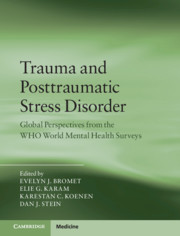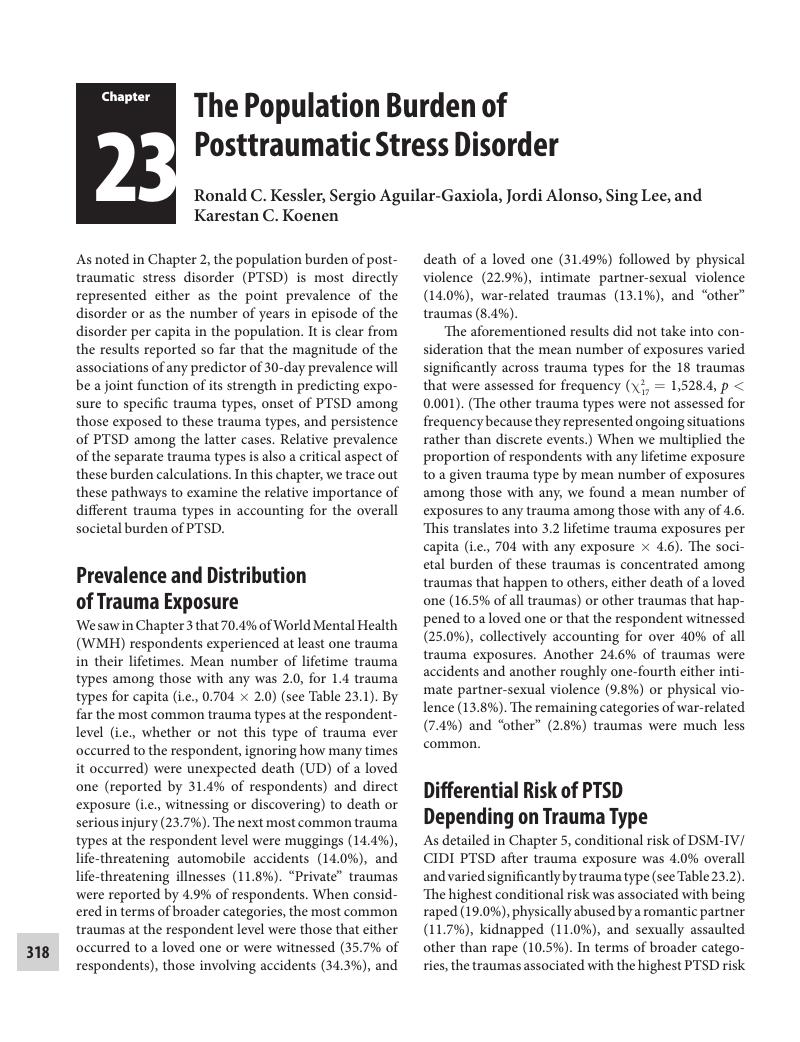 Trauma and Posttraumatic Stress Disorder
Trauma and Posttraumatic Stress Disorder Book contents
- Trauma and Posttraumatic Stress Disorder
- Trauma and Posttraumatic Stress Disorder
- Copyright page
- Contents
- Contributors
- Foreword
- Acknowledgments
- Section 1 Introduction
- Section 2 Epidemiology of Trauma Exposure
- Section 3 Epidemiology of Posttraumatic Stress Disorder
- Section 4 Factors Influencing the Onset and Course of Posttraumatic Stress Disorder
- Section 5 Dissecting the Clinical Picture
- Section 6 Conclusions and Future Directions
- Chapter 22 Data Mining to Predict Posttraumatic Stress Disorder Onset in the Wake of Trauma Exposure
- Chapter 23 The Population Burden of Posttraumatic Stress Disorder
- Chapter 24 Conclusions and Future Directions
- Index
- References
Chapter 23 - The Population Burden of Posttraumatic Stress Disorder
from Section 6 - Conclusions and Future Directions
Published online by Cambridge University Press: 26 July 2018
- Trauma and Posttraumatic Stress Disorder
- Trauma and Posttraumatic Stress Disorder
- Copyright page
- Contents
- Contributors
- Foreword
- Acknowledgments
- Section 1 Introduction
- Section 2 Epidemiology of Trauma Exposure
- Section 3 Epidemiology of Posttraumatic Stress Disorder
- Section 4 Factors Influencing the Onset and Course of Posttraumatic Stress Disorder
- Section 5 Dissecting the Clinical Picture
- Section 6 Conclusions and Future Directions
- Chapter 22 Data Mining to Predict Posttraumatic Stress Disorder Onset in the Wake of Trauma Exposure
- Chapter 23 The Population Burden of Posttraumatic Stress Disorder
- Chapter 24 Conclusions and Future Directions
- Index
- References
Summary

- Type
- Chapter
- Information
- Trauma and Posttraumatic Stress DisorderGlobal Perspectives from the WHO World Mental Health Surveys, pp. 318 - 324Publisher: Cambridge University PressPrint publication year: 2018
References
- 1
- Cited by


